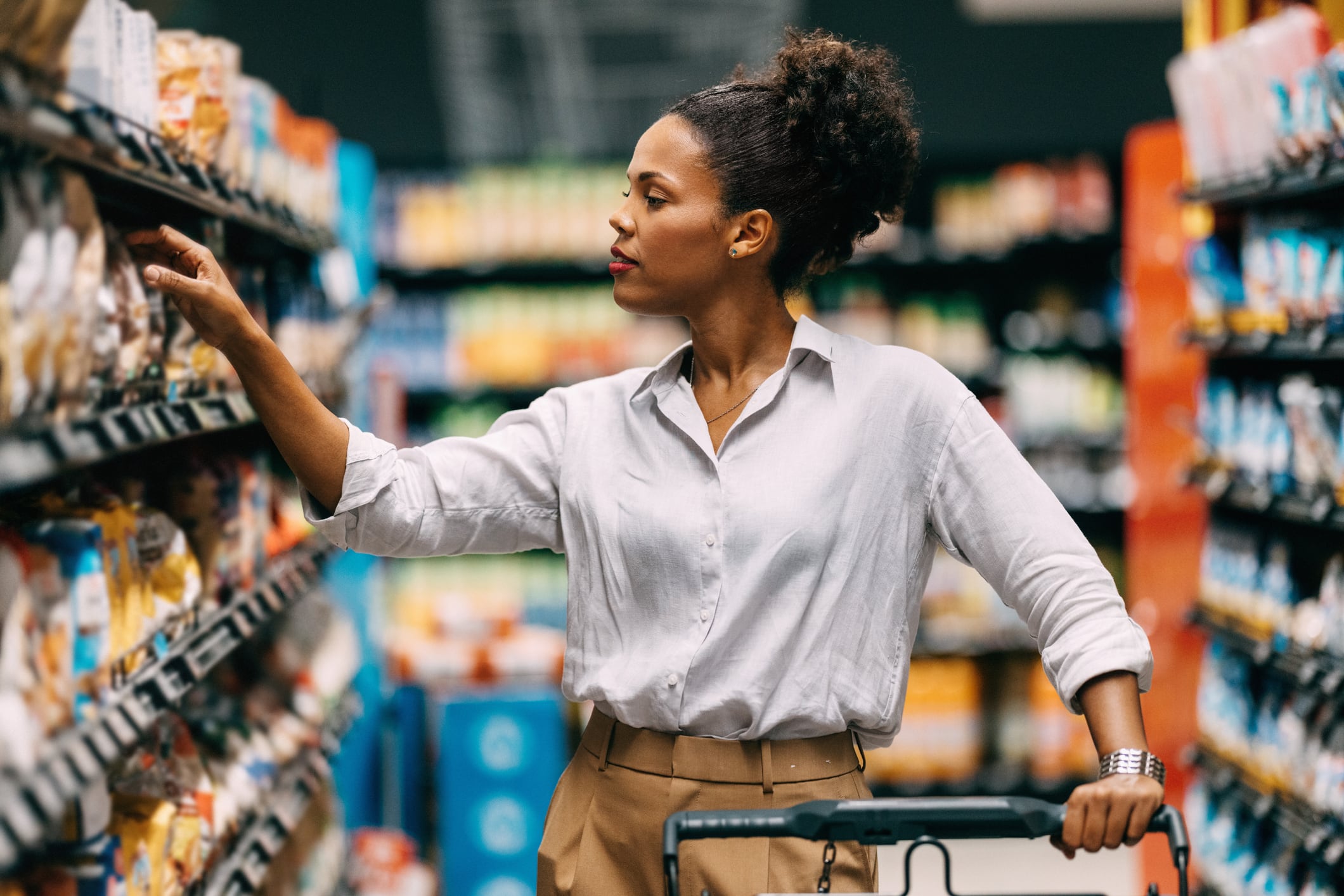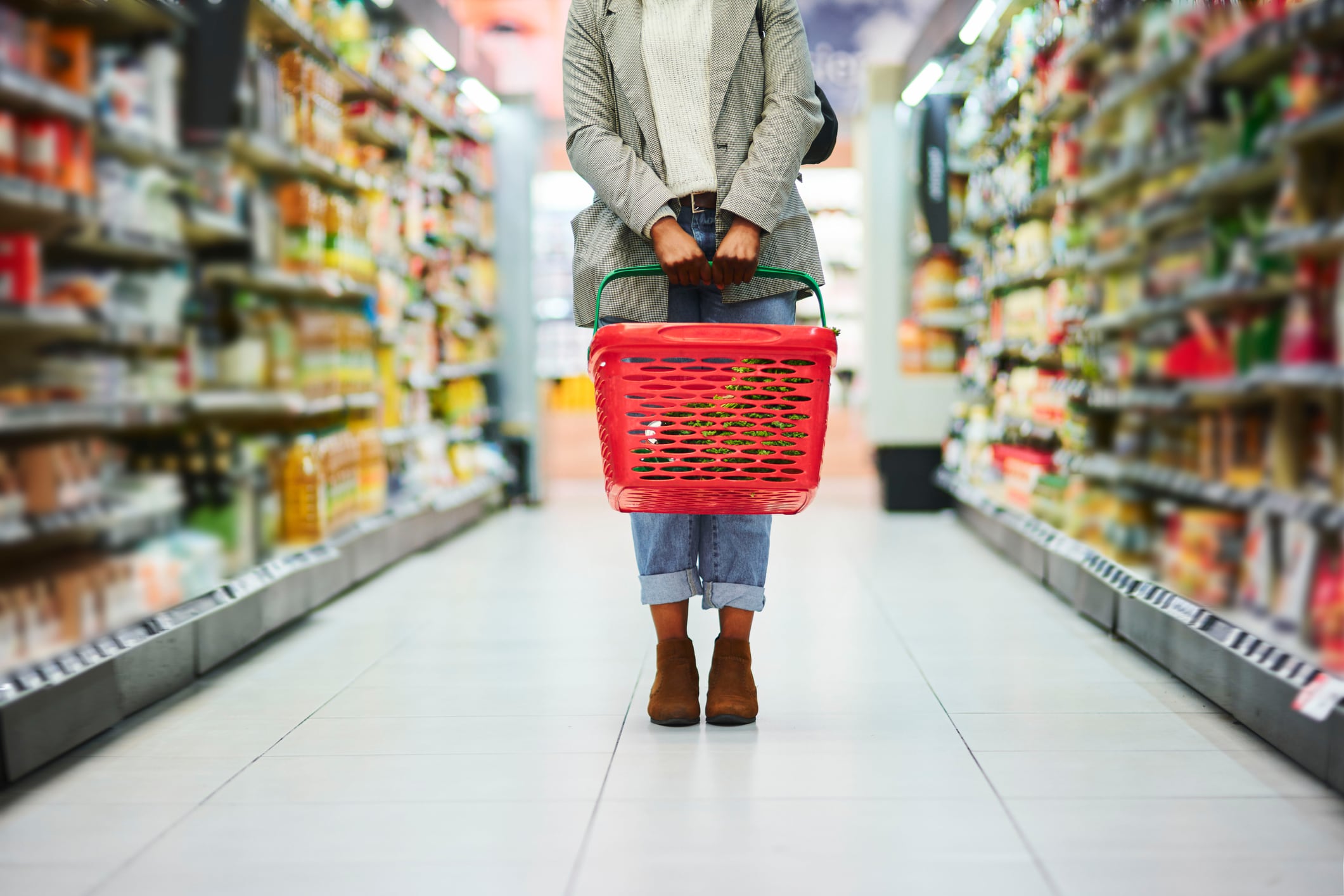In the US, nearly a quarter of FMCG products feature a sustainability claim, according to Chicago-based market intelligence agency Circana. Sustainable products – those that have claims such as USDA Organic, non-GMO, or B-Corp on-pack – are highly attractive for consumers, with nearly half of shoppers stating they shop at retailers that carry sustainable ranges.
Meanwhile, the price gap between sustainable and regular products in the US has shrunk in recent years: declining from around 40% in 2018 to just shy of 27% in 2024.
In food, the categories with the largest share of sustainable SKUs include yogurt, natural cheese, milk, fresh bread, coffee and soup.
But retailers may be missing a trick when making stocking decisions – by targeting a narrow consumer group based on pre-existing biases around race, income and political beliefs rather than profit-driven economics, a new study found.
This rationale could be holding back the entire US category, which is still much smaller than in the UK (37% unit share of the market) and Germany (42%).
Shattering the sustainable shopper myth
According to the paper published in the Journal of Marketing (see ‘Sources’ below for more information), retailers are stocking more sustainable products in areas dominated by liberal, white, affluent consumers.
For example, a higher percentage of Democratic voters in a particular area meant increased availability of sustainability-marketed products in stores; while regions with predominantly lower-income, non-white consumers saw a dip in sustainable product availability, the study found.
But retailers may be missing out on sales by targeting what is considered the ‘stereotypical sustainable consumer’. This is because while research has linked liberal political views with sustainable intent, race-based disparity in product availability has not been economically substantiated so far. In fact, existing research suggests that minorities are more likely to engage in sustainability, the new study’s authors point out.

This study’s findings are based on weekly Circana store-level scanner data for products from 4 CPG categories – yogurt, coffee, frozen dinners and laundry detergents – stocked across grocery and big-box stores in the US. (Data from 25,000 stores in 52 states and 2,445 counties was used.)
Yogurt comprised 9,319 refrigerated and beverage products from 349 brands; with nearly 14,000 coffee products from 1,111 brands in single-serve, ground and instant varieties having been examined.
Products were considered ‘sustainable’ if they had at least one of the following claims on-pack: organic, non-GMO, plant-based ingredients, Fair Trade, Rainforest Alliance, among others.
In the US market, refrigerated yogurt accounts for more than 90% of total dollar sales, while beverages amount to 9.5%. In coffee, single-cup is the best-seller at 43.9% followed by ground (around 40%) and instant (6.4%) coffee.
Circana
Sustainability sells . . . or does it?
Consumers say they want sustainable products – but would the pay the price premium?
'Sustainable' dairy costs more
According to Circana, price premiums on sustainable products vary by category.
In dairy, natural cheese has the lowest premium versus regular counterparts, followed by milk and yogurt with the highest premiums.
In their study, the researchers considered the price elasticity of demand as well as the profit potential of sustainable products to gauge the attitudes of consumers who shop at grocery stores and big-box stores, respectively.
In grocery stores, shoppers were more likely to buy sustainable products over regular ones irrespective of price hikes (except for yogurt drinks, where there was no difference in intent).
But in big-box stores, they were more likely to stop buying sustainable products if prices increased – except for coffee and yogurt, where both sustainable and regular products had similar price sensitivity.
Meanwhile, the profit potential for sustainable yogurt was generally higher than that for non-sustainable options in grocery stores – and yogurt was one of few categories where more on-pack claims were associated with lower price elasticities, suggesting consumers valued multiple claims.
Which claims are linked to profits?
In yogurt, ‘Certified B-Corp’ had the strongest profit potential, followed by ‘non-GMO’ and ‘organic’. For yogurt drinks, ‘non-GMO’ had a slightly higher profit potential in big-box stores, the study found.
In coffee, ‘Fair Trade’ and ‘Sustainably Sourced’ had the highest profit potential in single-cup coffee; while ‘Rainforest Alliance’ had a lower profit potential across both store formats.
Meanwhile, ground coffee with a ‘Sustainably Sourced’ claim had a higher profit potential than other products in the category across both store formats.
Do multiple claims matter?
Sporting more than one sustainable claim on-pack increased the profit potential in yogurt, ground coffee and frozen dinners in grocery stores, and for yogurt drinks and frozen dinners – in mass merchandiser stores.
Overall, the researchers found that targeting the stereotypical sustainable consumer did not increase the likelihood of selling more sustainable products – but introducing such products in underserved markets – such as non-white, Republican regions – may do the trick.
“If only a fraction of consumers notice the sustainability labels as well, then profitability could be increased further with better merchandising,” the authors suggested.
Private label opportunities
Besides improving availability, retailers can boost sustainable product sales by introducing or growing their own-label product lines, Circana suggests.
In the US, private label have 22% share of CPG.FMCG sales – a 4.6% change vs year ago, $308bn in sales and a 24% unit share, according to the market intelligence firm.
And retailers are finding that sustainable private label products are meeting a growing consumer demand for value and quality - suggesting there is a real growth pocket for good-value, sustainably-marketed products in the private label space.
Sources:
Bollinger, B., Kronthal-Sacco, R., & Zhu, L. (2025). EXPRESS: Sustainable Product Profit Potential and Availability. Journal of Marketing, 0(ja). DOI: 10.1177/00222429251343823

